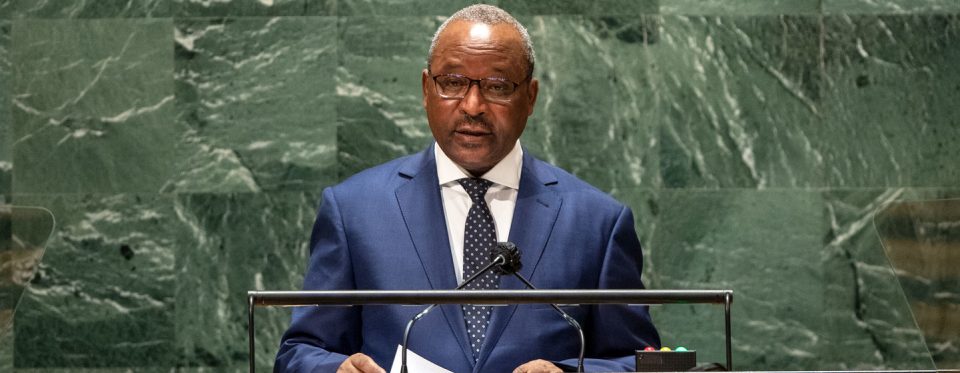Apart from disastrous economic consequences, the COVID-19 pandemic has also amplified the climate and security crisis in the Sahel, said Niger’s Minister of Foreign Affairs during the country’s turn to speak at the UN General Assembly.
Hassoumi Massoudou highlighted that his country and region are suffering recurrent droughts and flooding, as well as locust infestations and the annual loss of thousands of hectares of agricultural land due to degradation.
Citing recent words of President Mohamed Bazoum, he said that to win the fight against climate change, the world needed more political will.
“It is the hope of Niger that COP26 in Glasgow will serve as a framework to reaffirm political will to battle the effects of climate change”, he said, noting that some of the big hurdles include finance and technology transfer for developing countries.
Climate and conflict
As a current non-permanent member of the UN Security Council, the Foreign Minister noted that his nation is co-chairing with Ireland an expert group that aims to adopt a resolution regarding the climate crisis.
“It is our conviction that fragility linked to climate change is an aggravating factor in conflicts and humanitarian crises”, he said.
Mr. Massoudou added that Niger understood this correlation clearly since it currently finds itself surrounded by “hotbeds of instability” and facing the attacks of “terrorist hordes”.
He said, however, that despite the size of their country and the lack of resources, Niger has shown itself to be resilient by safeguarding its territorial integrity and stability.
This was due to the foresight of Niger’s Government, the courage and determination of its Defense and Security Forces and the invaluable support of bilateral partners such as multilateral organizations, he explained, extending “sincere thanks” for such efforts.
Return of displaced communities
The Foreign Minister also informed the Assembly that as part of a pilot programme last June, Niger had been able to return almost 6,000 people to their homes after 6 years of displacement.
“We also aim to eventually repatriate around 130,000 displaced people from Diffa to Borno state in Nigeria”, he stated.
Mr. Massoudou said his Government remains convinced that terrorism and organized crime are the consequences of other ongoing challenges that must be overcome, especially poverty and inequality.
“It is not only military actions that will allow us to definitively defeat terrorism, but also our ability to implement development programmes and meet the essential needs of our populations”, he emphasized.
A turning point for democracy
The Foreign Minister said that while 2021 continues to be shadowed by COVID-19, the year has been a turning point for the consolidation of democracy in his country.
“Niger was able to succeed in the first peaceful political transfer of power from one elected president to another”, he explained.
Finally, Mr. Massoudou called on the international community to show the same disposition it had in the fight against COVID-19 to tackle other challenges such as climate change, “another pandemic with devastating effects”.
“In Niger, we believe that our commitment to the defense of ideals of the [UN] Charter and the values of peace, solidarity that it embodies, will allow us to carry out this fight in order to build a world of peace, justice, and prosperity”, he concluded.
As an independent media platform, we do not take advertisements from governments and corporate houses. It is you, our readers, who have supported us on our journey to do honest and unbiased journalism. Please contribute, so that we can continue to do the same in future.

